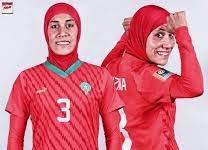A milestone that took place in June 2025, the Development Pathway of Female Coach Educators was revealed by FIFA to speed up the professional development of women coaches across the globe. The operational commencement of this international programme was observed in the first Technical Experts Workshop in Lisbon and organized by the Portuguese Football Federation. This is aimed at developing national football systems through coach educator training more female coaches as these coach educators will develop and support female coaches in all levels.
This action falls under FIFA current Women Football Development Programme that comprises 13 formal projects since the purpose is to increase participation, standards, and leadership. With the successful running of 2023 Women’s World Cup in Australia and New Zealand, the head of FIFA Gianni Infantino has reiterated the need to keep the sport on the current positive trajectory especially ahead of the 2027 Women world cup in Brazil.
Building a pipeline of female coaches
Expanding the network of educators
A central obstacle in the development of women’s football is the limited number of female coach educators. Without enough educators, the coaching pipeline remains narrow and vulnerable. The system created in FIFA is supposed to eliminate this bottleneck by enabling women to be coach educators certified by their respective home associations.
The focus of FIFA Chief Women Football Officer Dame Sarai Bareman is that the program is not meant to bring immediate rewards but should help in creating infrastructure in the long term. Our sport requires strong figures to empower the future in this way and to make sure the future sport will involve women, all around the sport at all levels, she added. Her statements reflect a bigger plan: the access, as well as, the visibility of women in every sphere of football management, should be expanded.
Scholarships and mentorships complementing education
In parallel with the educators’ pathway, FIFA has launched scholarship and mentorship programmes to ensure female coaches receive both financial and developmental support. The Coach Education Scholarships currently support 41 women, offering them opportunities to obtain elite certifications, such as the AFC A Diploma or UEFA Pro License, and participate in practical training assignments.
The Elite Performance Coach Mentorship Programme is another vital element, pairing emerging coaches with seasoned mentors. April Heinrichs, a former USA Women’s National Team coach, advocates this approach, noting that
“mentee-led mentoring allows women to navigate their paths with expert guidance but on their own terms.”
These resources are designed to enhance technical competencies and build career resilience.
The impact on women’s football globally
Growth in licenses and leadership roles
Over the last decade, there is a significant rise in the number of licensed female coaches. Since 2016, UEFA says more than 1,600 licenses have been granted to females as part of its Coach Development Programme for Women. As of the end of 2023, over 20.000 female coaches with UEFA licence were registered, a 45 percent increase compared to earlier.
This growth is also visible at the highest levels. The UEFA Women EURO 2025 marked the highest number of female head coaches with seven amongst the national teams. This representation shows real progress, and it also demonstrates that there is need to go further and achieve such change in all federations.
National case studies
PSSI, which is the Football Federation of Indonesia, has adopted the coach scholarship programme of FIFA with great effect. Scores of women all over the archipelago have undergone qualified training, reinforcing the quality of home leagues and existence of the country team.
These national initiatives can be viewed as an example of the contribution of local adoption of international frameworks to a significant development. This impact should be further increased in Asia, Africa and South America during regional workshops, planned in the second half of 2025.
Economic and social benefits
Astrid Hamke, the President of the economic council of the CDU of Germany, linked the initiative of the FIFA world to the broader socioeconomic trends. She added that spending on women coaching would bring employment, action within the society and equality between the genders working in a male-dominated sector. Football is no longer a game, but a tool of change in society.
Other programmes such as the Female Coach Educators Pathway are breaking new grounds in gender norms and this has created opportunity in bringing more females into the coaching sphere, sports science, administration and governance.
Challenges and opportunities ahead
Systemic barriers to overcome
In spite of these gains, numerous obstacles do remain. Most female coaches complain of low access to high standard training, peer networks and leadership. These are met by the FIFA pathway that provides a comprehensive support structure, although this has to be done successfully through the collaboration of the national associations and regional organizations.
In less developed football nations, gender inequality, cultural constraints, and lack of infrastructure continue to limit women’s participation. The local response will include localised solutions, long term financing, and cultural sensitivity in achieving inclusivity in such areas.
Preparing for Brazil 2027
The next international standard of women football will be the 2027 FIFA Women World Cup in Brazil. The purpose of the pathway (through FIFA) is that by the time the tournament comes around, there is a strong group of female coaches working with teams at every level, whether in youth academies or the national team.
This is not just about representation. It’s about performance. Diverse coaching teams bring broader tactical thinking, improved player development, and stronger team cohesion. The quality of the tournament and the growth of football globally depend on expanding who gets to lead.
Voices from the field
Junpen Seesruam, a coach from Thailand, spoke about how the FIFA-supported AFC A Diploma helped her elevate the standards of Thailand’s national team. She said:
“We need these opportunities not just to learn, but to teach others. The impact multiplies quickly.”
Rumpha Varaveerakul, Thailand Football Association Director of Women Football also welcomed the FIFA programme in promoting female coaches and empowering the domestic championships.
Their experiences affirm the fact that the international processes such as the FIFA can only take off when scaled down and embraced on the national levels. Trainers who are trained in these ways tend to use their skills and teach dozens of other people and ensure that the programme reaches even more people.
A model for sustainable change
The Way of the Female Coach Educators offers a viable long term model into how change can be achieved in women in football. It does not only target players and the tournaments but also concentrates on developing human capital and institutional capacity. It is a change in the mindset: it is not short-term campaigns, but systems change.
Incorporating education, mentorship, financial support and advocacy, the initiative provides the 360-degree solution to producing women leaders in sport. The combination of approaches is the new precedent of the ways to decrease gender disparities by international sports organizations.
The road ahead for women in football
The Female Coach Educators Pathway developed by FIFA is a very important milestone in the evolution of the female game in terms of development, management and sustainability. There is still less than two years until Brazil 2027, and, as luck might have it, the stakes are high but the chance to make a change is here as well. The international football fraternity is keen to know whether the efforts will bring structural parity both on field and off field.
These kinds of initiatives are the beginning of transformation of the leadership of football not just due to the enhancement of skills, but also the modification of expectations. Young girls just begin to think that they can also become coaches, when they see women in such positions.
Long-term success of the Female Coach Educators Pathway will not be gauged by the sheer number of licenses delivered or coaches who are trained, but by the cultures shifted across, the systems transformed and new stories written in stadiums all over the globe.













